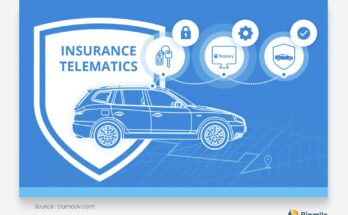Introduction
As the world shifts toward cleaner, more sustainable transportation, electric vehicles (EVs) are becoming increasingly popular. With this rise in EV ownership comes the need for a deeper understanding of how auto insurance works for these vehicles. Insurance coverage for electric cars can differ from traditional vehicles, and it’s essential to know what factors influence EV insurance rates, the coverage options available, and what you need to look out for when purchasing a policy. In this post, we’ll break down everything you need to know about electric vehicle insurance.
Why Electric Vehicle Insurance is Different
Unique Repair Costs
One of the main reasons EV insurance differs from traditional auto insurance is due to the higher costs of repair and replacement parts. Electric vehicles are equipped with advanced technology, such as specialized batteries and electric motors, which can be costly to repair or replace. If an EV is involved in an accident, the cost to repair the vehicle could be significantly higher than with a conventional car. This factor impacts insurance premiums, as insurers factor in these higher repair costs when calculating rates.
Battery Coverage
The battery is one of the most important—and expensive—components of an electric vehicle. While some policies automatically include coverage for EV batteries, others may offer it as an optional add-on. Since batteries account for a significant portion of an EV’s value, comprehensive insurance that covers battery damage or loss is crucial for EV owners.
Increased Theft Risk for High-Value Parts
Electric vehicles, especially high-end models like Teslas, can be a target for theft due to their high-tech components and expensive parts. Insurers may increase premiums for vehicles at higher risk of theft or vandalism. EVs are often equipped with sophisticated systems that track their location, but owners should still be aware of the increased risk and discuss additional coverage options with their insurance provider.
Key Coverage Types for Electric Vehicles
Collision Coverage
Collision coverage for electric vehicles works the same way as it does for conventional cars—it pays for damages to your EV after a crash. Since repairs for EVs can be more expensive, it’s important to ensure you have adequate collision coverage that fully reflects the value of your car and the higher repair costs of electric components.
Comprehensive Coverage
Comprehensive coverage protects your vehicle from non-collision-related incidents such as theft, vandalism, or natural disasters. For EVs, comprehensive coverage should also account for the risk of battery failure, which can be an expensive issue to fix. Some insurers may offer specific coverage options for battery-related problems, so be sure to ask your insurance provider if it’s included.
Liability Coverage
Liability coverage is required by law in most areas, and it covers the cost of damages to another person’s property or injuries caused by an accident where you’re at fault. EV owners should ensure they have sufficient liability coverage to meet their state’s minimum requirements and to protect themselves in the event of an accident.
Uninsured/Underinsured Motorist Coverage
Uninsured or underinsured motorist coverage protects you if you’re involved in an accident with a driver who doesn’t have sufficient insurance. This is particularly important as EVs are often more expensive than traditional cars, and repair costs can be steep. This coverage helps cover the difference if the at-fault driver’s insurance policy is not enough to cover the damages to your vehicle.
Factors That Affect Your Electric Vehicle Insurance Premium
Vehicle Type and Model
The type of electric vehicle you own has a major impact on your insurance rates. High-end EV models, such as the Tesla Model S, often come with higher premiums due to their higher repair costs, advanced technology, and risk of theft. More affordable EV models may come with lower premiums. Additionally, some models come with advanced safety features, such as automatic braking or collision avoidance systems, which may help reduce your premiums.
Driving History and Experience
Just like with traditional vehicles, your driving history and experience are key factors that influence insurance premiums. Safe driving habits can help lower your rates, while a history of accidents or traffic violations may increase your premiums. New drivers may face higher premiums due to lack of experience, but discounts are often available for those who take defensive driving courses or maintain a clean driving record.
Charging Equipment and Installation
If you have a home charging station for your electric vehicle, it may impact your insurance coverage. In some cases, you may be able to add your home charging station to your homeowner’s policy for additional protection. It’s important to check with your insurer to see if charging equipment is covered under your existing policy or if you need to add it separately.
Location
Where you live can significantly impact your insurance premiums. Areas with higher rates of accidents, theft, or weather-related risks may cause premiums to increase. On the other hand, if you live in an area with fewer accidents or a lower risk of natural disasters, your rates may be more affordable. Insurers also consider local laws, such as government incentives for EV owners, which can sometimes lower premiums.
Discounts for Electric Vehicle Owners
Green Car Discounts
Many insurance companies offer discounts for electric vehicle owners due to the environmental benefits of driving an EV. These “green car” discounts reward eco-conscious drivers with lower rates for choosing environmentally friendly vehicles. Be sure to ask your insurance provider about any discounts available for EV owners.
Safety Features Discounts
Electric vehicles are often equipped with advanced safety features, such as lane departure warnings, automatic emergency braking, and collision prevention systems. Many insurers offer discounts for these features, as they help reduce the risk of accidents and injuries. If your EV is equipped with these features, you may be eligible for lower premiums.
Low-Mileage Discounts
Since many electric vehicle owners use their cars for short commutes or daily errands, they may not drive as much as the average car owner. Low-mileage discounts are often available for drivers who don’t accumulate many miles each year. These discounts can be especially beneficial for EV owners who primarily use their vehicles for local trips.
Is EV Insurance More Expensive Than Traditional Car Insurance?
Generally, insurance for electric vehicles tends to be more expensive than for traditional gas-powered cars. This is mainly due to the higher costs associated with repairing and replacing electric vehicle parts, such as the battery and specialized components. However, this does not mean that EV insurance is unaffordable. By comparing quotes from different providers and seeking out available discounts, EV owners can find affordable coverage options that fit their needs.
What to Look for When Purchasing EV Insurance
Compare Multiple Insurers
Before committing to a policy, it’s important to compare multiple insurance providers to find the best coverage and rates for your electric vehicle. Look for insurers who specialize in EV insurance or those who offer discounts and incentives for electric vehicle owners.
Ensure Adequate Battery Coverage
Since the battery is one of the most expensive parts of an electric vehicle, it’s crucial to make sure your insurance policy covers battery damage or failure. Some policies may automatically include battery coverage, while others may offer it as an optional add-on. Always check your policy’s fine print to ensure your EV’s battery is adequately covered.
Consider Additional Coverage Options
As an EV owner, you may want to consider additional coverage options, such as roadside assistance, rental car reimbursement, or protection for your home charging equipment. These add-ons can offer extra peace of mind, ensuring that you’re covered in a variety of scenarios.
Conclusion
Electric vehicles represent the future of transportation, but their unique features require specialized insurance coverage. When insuring your EV, it’s important to understand the different types of coverage, factors that influence your premiums, and discounts available for eco-friendly vehicles. By taking the time to research and compare options, you can ensure that you’re getting the best protection for your electric vehicle while keeping your insurance costs manageable. Make sure to consult with your insurer to customize a policy that meets your needs and provides you with the peace of mind you deserve.





